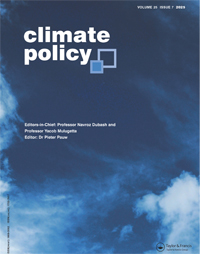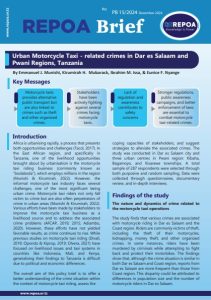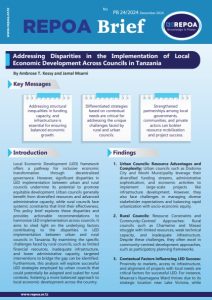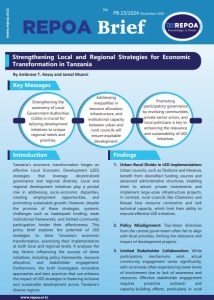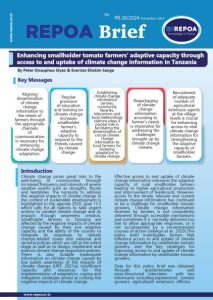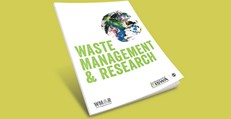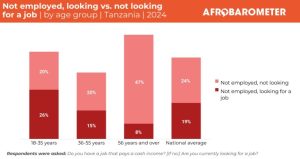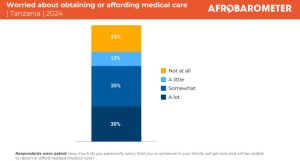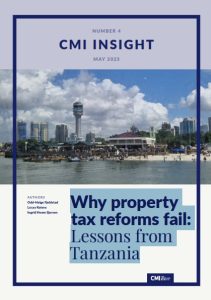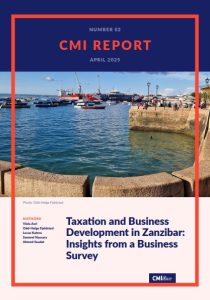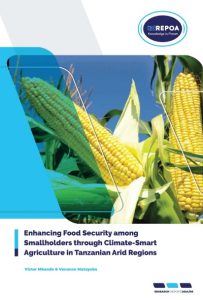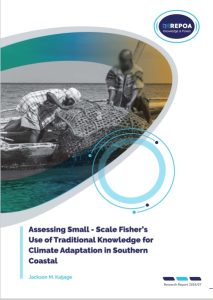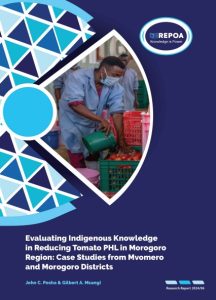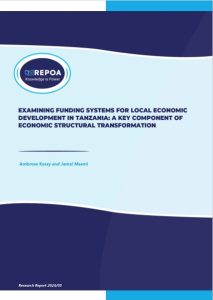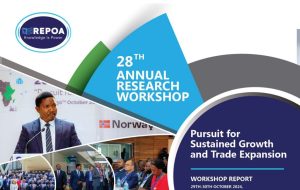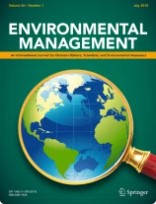Tanzania has increasingly accessed international climate finance, with approximately USD 6.2 billion mobilized by 2018.
Urban Motorcycle Taxi -related crimes in Dar es Salaam and Pwani Regions, Tanzania
The overall aim of this policy brief is to offer a better understanding of the crime situation within the context of
Addressing Disparities in Local Economic Development Implementation across Councils in Tanzania
This policy brief explores these disparities and provides actionable recommendations to harmonize Local Economic
Strengthening Local and Regional Strategies for Economic Transformation in Tanzania
This policy brief explores the potential of Local Economic Development (LED) strategies to drive Tanzania's economic
Enhancing smallholder tomato farmers’ adaptive capacity through access to and uptake of climate change information in Tanzania
This policy brief investigates factors that influence access to and uptake of climate change information by smallholder
Urban solid waste management and the decent work: Insights from Tanzania’s key cities
This study investigates the labour practices of employed and freelance solid waste workers in Tanzania’s major cities n
Unlocking Tanzania’s potential: Youth look to jobs, entrepreneurial opportunities
On their top priorities for government action – including health, water supply, infrastructure/roads, electricity, e
Tanzanians applaud government performance on health, but it remains their top concern
This dispatch/ policy brief presents findings from a special Afrobarometer Round 10 survey module focusing on health
Why property tax reforms fail: Lessons from Tanzania
Over the past two decades, property tax administration in Tanzania has undergone substantial changes, shifting between
Taxation and Business Development in Zanzibar: Insights from a Business Survey
The private sector is a critical driver of economic growth in Tanzania. The government has expressed a strong commitment
Enhancing Food Security among Smallholders through Climate-Smart Agriculture in Tanzanian Arid Regions
Climate-smart agriculture (CSA) has been proposed as an approach to mitigate some of the threats emanating from climatic
Assessing Small – Scale Fisher’s Use of Traditional Knowledge for Climate Adaptation in Southern Coastal Areas
The study aimed to assess small-scale fishers’ use of traditional knowledge for climate adaptation in Lindi and Mtwara r
Evaluating Indigenous Knowledge in Reducing Tomato PHL in Morogoro Region: Case Studies from Mvomero and Morogoro Districts
Tomatoes are one of the most widely consumed vegetables in sub-Saharan Africa, valued for their essential vitamins and
Examining Funding Systems for Local Economic Development in Tanzania: A Key Component of Economic Structural Transformation
This study investigates the funding mechanisms that support Local Economic Development (LED) initiatives across seven
Workshop Report: 28th Annual Research Workshop – 2024 “Pursuit for Sustained Growth and Trade Expansion”
REPOA’s Annual Research Workshop (ARW) continues to be the longest running and largest research workshop held in T
Strengthening Link between National Adaptation Plans (NAPs), Sector Policies and National Development Plans: Implications for Climate Change Governance
This study intended to understand the extent of climate change coherence across national climate change adaptation

